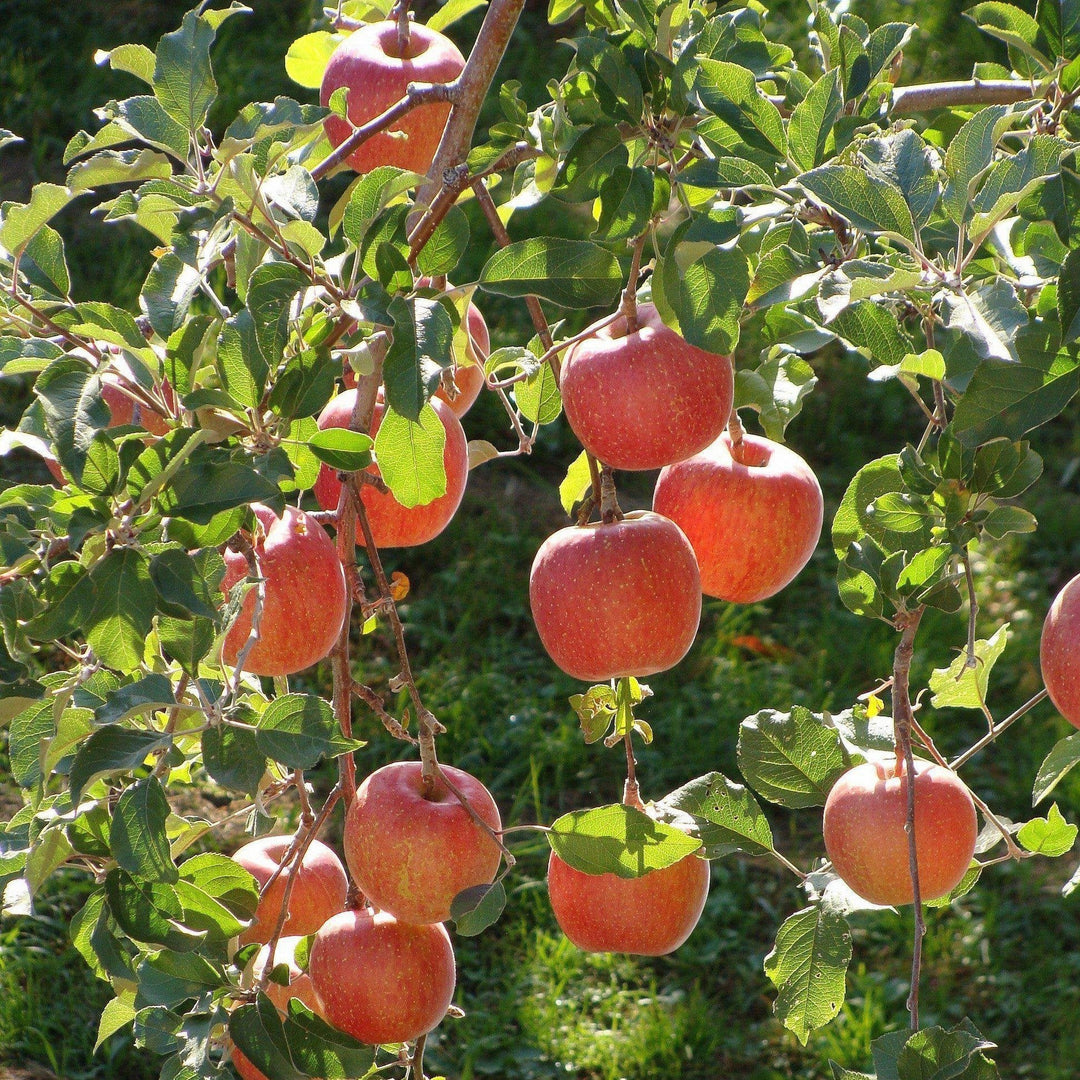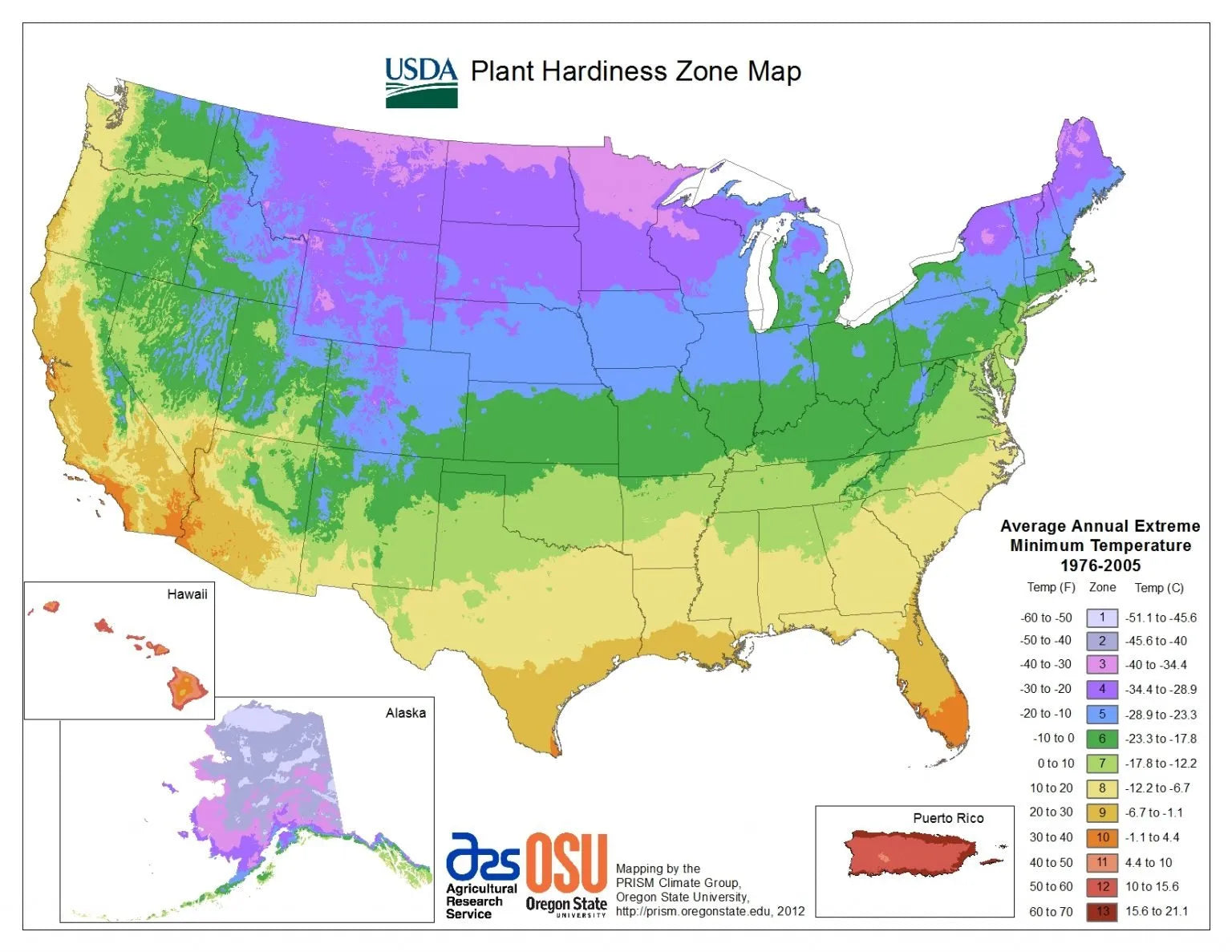
Fuji Apple
Malus pumila 'Fuji'
- In stock, ready to ship
- Backordered, shipping soon
- Locally Grown
Fuji Apple is a popular apple variety known for its sweet and crisp characteristics. Here's some information about Fuji Apples:
-
Origin: Fuji Apples were first developed in Japan in the late 1930s. They are a cross between two American apple varieties, the Red Delicious and the Ralls Janet.
-
Appearance: Fuji Apples have a round shape with a yellow-green background color. They are often covered with a red blush or stripes. The skin is thick and has a slightly waxy texture.
-
Flavor: Fuji Apples are known for their sweet and juicy flavor. They have a pleasant balance of sweetness and acidity, making them enjoyable to eat fresh. The flesh is crisp and firm, providing a satisfying crunch with each bite.
-
Nutritional Value: Fuji Apples are not only delicious but also nutritious. They are a good source of dietary fiber, vitamin C, and antioxidants. They also contain various minerals and phytonutrients that contribute to overall health.
|
Type: |
|
|
Origins: |
Caucasus Mountain Region |
|
Height: |
15' - 20' |
|
Spread: |
15’ - 20' |
|
Spacing: |
18' |
|
USDA Hardiness Zone: |
6 - 9 |
|
Culture: |
|
|
Bloom Color: |
White |
|
Season of Interest: |
MAINTENANCE NEEDS: High Maintenance. Water Regularly. Potential issues include apple scab, cedar apple rust, fire blight, leaf spot and and powdery mildew. Possible pests are aphids, maggots, boreres, and spider mites. Most commercially available Apples are grafted onto their rootstock, resulting in dwarf (8-10ft), Semi-dwarf (12-15ft) or standard tree heights all with full sized fruits. Ask the provider the rootstock classification for estimated size. Dwarf stock is easier to maintain and produces fruit at an earlier age.
LANDSCAPE USES: Accents or Group Plantings, Borders, Wildlife Gardens, Shade Tree, Edible Garden, and Container.
COMPANION PLANTS: Apple, Shasta Daisy, Bugleweed
IMAGE: Aomorikuma, Rosaceae Malus pumila Malus pumila Var domestica Apples Fuji, CC BY-SA 3.0
* As plants have ranges in appearance they may not appear as the images shown.
Hahira Nursery takes pride in growing high-quality, fresh, healthy plants and ensuring they are delivered safely, on time, and with little to no damage so they are ready to be planted.
Despite all of our best efforts, once the plants have left our nursery, there are many variables outside of our control that can cause plants, flowers, trees, shrubs, or grasses to not thrive as they should. Plants are living organisms and are susceptible to a number of different environmental and care factors that are outside of our control.
Our goal is to build strong relationships with our customers and we always want to make things right, but we cannot always guarantee what happens once the plants are outside of our nursery, how you care for the plants, if they’re in the correct growing zones, weather damage, soil conditions, insect infestations, etc..
If you have any questions or concerns about a purchase you’ve made, please email us at info@hahiranursery.com and we will work with you on a case-by-case basis to the best of our ability.
Please note that all living organisms are not identical and their coloring, size, and shapes may differ from what you see online in our store. Each plant has its own characteristics that are impacted by the time of year, growth cycle, weather, and other elements which will cause them to look different than their photos.


